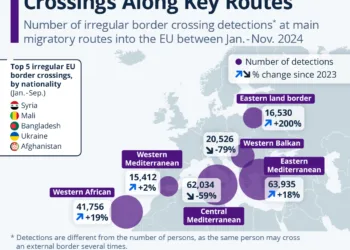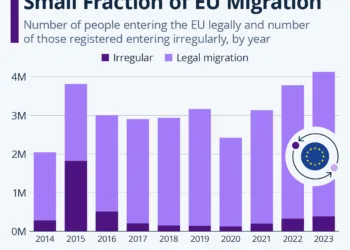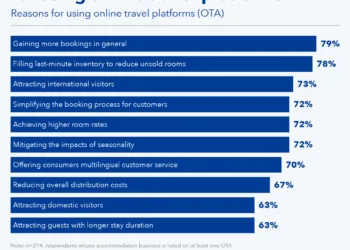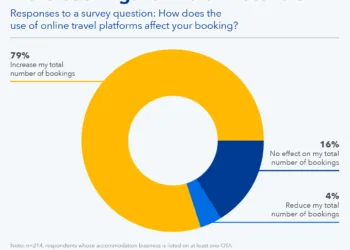The Hospitality Skills Shortages in Europe: An In-Depth Analysis
The hospitality sector across Europe is experiencing a pressing crisis of skills shortages, which poses a significant threat to its growth and operational efficiency. Strikingly, between 10% and 20% of positions within the accommodation sector remain unfilled due to a scarcity of skilled applicants. This phenomenon is exacerbated by a workforce that frequently lacks the necessary qualifications, particularly among younger employees.
The Current Landscape of Skills Shortages
Unfilled Positions and Qualification Gaps
A recent analysis reveals that a significant portion of the workforce, especially individuals under 25, possesses lower-than-average qualifications. In Spain, for instance, approximately 16% of workers within the accommodation sector have only completed primary education. This alarming statistic highlights a systemic issue within the training and educational frameworks aimed at preparing future hospitality professionals.
Dual-Sided Skill Difficulty
The skills shortage affects both ends of the spectrum. On one hand, there is a struggle to attract highly skilled professionals, including those with university degrees. On the other hand, retaining trained staff is equally challenging, creating a vicious cycle of turnover and talent loss. As existing employees seek better opportunities, organizations face the added burden of constantly searching for replacements, which can drain resources and destabilize operations.
Industry Response to the Skills Crisis
Call for Robust Skills Development Programs
Key industry stakeholders, such as the European Federation of Food, Agriculture and Tourism Trade Unions (EFFAT) and Hotrec, are raising alarm bells regarding the current state of skills development. These organizations advocate for the implementation of more robust training programs designed to enhance both recruitment and retention so that they can develop a more competent workforce.
Lifelong Learning and Digital Access
The European Commission has acknowledged the urgent need for interventions to bridge the skills gap. Emphasis is placed on providing digital access to learning resources and promoting lifelong learning opportunities. Such measures are critical not only for addressing current shortages but also for future-proofing the industry against ongoing challenges.
Challenges Faced by Small and Independent Accommodations
Disparities in Training Resources
Small and independent accommodations particularly suffer from a shortage of resources to provide formal training. This disadvantage limits their ability to compete with larger hotel chains that typically have structured training programs. Consequently, small businesses are left vulnerable in a competitive market, unable to nurture talent adequately or grow their workforce’s skill set.
The Impact on Operational Efficiency
The inability to attract and retain a skilled workforce can seriously undermine operational efficiency. Businesses that lack qualified staff may struggle with service delivery, leading to a decline in customer satisfaction. This can have long-term implications for customer loyalty, brand reputation, and ultimately, the financial performance of the organization.
The Path Forward: Strategies for Future Competitiveness
Emphasizing Education and Training Initiatives
Addressing the skills shortage will require well-coordinated efforts that involve both public and private sectors. By investing in education and training programs that align with the needs of the hospitality industry, stakeholders can contribute to a more sustainable workforce. This could include formal partnerships with educational institutions, vocational training programs, and apprenticeships that offer real-world experience.
Creating Inclusive Learning Environments
Furthermore, fostering inclusive learning environments that accommodate various learning styles and educational backgrounds is essential. This can empower a broader range of potential candidates, enhancing diversity within the sector and addressing the skills gap from multiple angles.
In summary, the hospitality sector in Europe faces a multifaceted skills crisis that demands immediate attention. Through collaborative initiatives, strategic investments in training, and a commitment to lifelong learning, the industry can work towards a more resilient and capable workforce that meets the demands of the modern economy.










